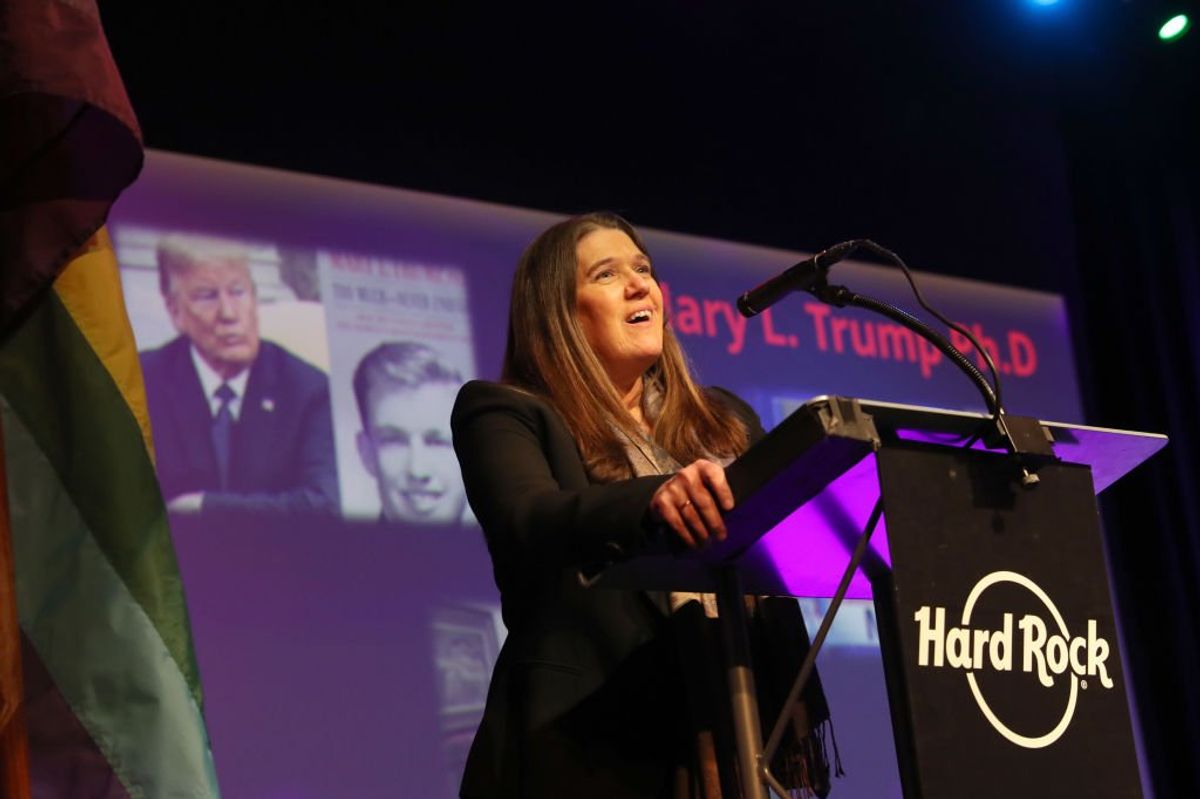

Former President Donald Trump scored a legal victory in the New York as he waited for a panel of jurors to determine the fate of his criminal hush money trial.
The victory was not against Manhattan District Attorney Alvin Bragg — who prosecuted Trump on charges that he falsified business records to conceal hush money payments ahead of the 2016 presidential election — but a member of his own family.
"The Appellate Division has affirmed the validity of President Trump's substantial claim against Mary Trump," attorney Alina Habba wrote on X Thursday.
"We look forward to resuming this suit to ensure she is held fully accountable for her blatant and egregious breach of contract."
Court records confirm New York Supreme Court's appellate division upheld a decision denying Mary Trump's motion to dismiss a lawsuit from her uncle.
"The motion to dismiss was nonetheless properly denied because the breach of contract claim has a substantial basis in law," the ruling states.
"At a minimum, nominal damages may still be available on the breach of contract claim even in the absence of actual damages."
The 2021 lawsuit involves Mary Trump, the New York Times and what Trump has described as an "insidious plot" to reveal the financial records of a standing president for a 2019 report that would win three journalists a Pulitzer.
In his lawsuit, Trump claimed the Times convinced his niece to “smuggle records out of her attorney’s office and turn them over to the Times," a skeptical Poynter analysis notes.
Trump also accused investigative reporters David Barstow, Russell Buettner and Susanne Craig of hounding Mary for records despite their knowledge of a settlement agreement barring her from disclosing them.
ALSO READ: Inside Donald Trump’s billion-dollar Big Oil heist
"I knocked on Mary Trump’s door," Craig said in 2021. "She opened it. I think they call that journalism."
The appellate court's Thursday ruling does not find Mary Trump or the Times liable — it rules Trump has a right to argue his case.
"While issues of fact exist as to the confidentiality provision’s meaning and scope, it is not so vague as to be unenforceable as a matter of law," the decision states. "Any ambiguity can be resolved through examination of parol evidence to discern the intent of the parties."
via Raw Story - Celebrating 20 Years of Independent Journalism https://ift.tt/KjAvIVc




